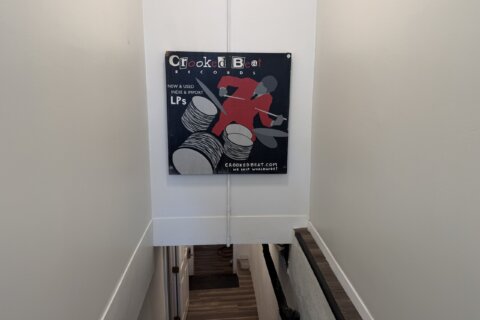Alexandria is considering a change to the city’s code that would help keep pedestrians safe and help police identify drivers who don’t stop for them while they’re trying to cross the street.
Christopher Ziemann, the Virginia city’s transportation planning division chief, said the change would alter the language on city signs. Currently, signs advise drivers to yield to pedestrians in the crosswalk. But under a proposed change, the signs would require drivers to stop for pedestrians who are crossing or trying to cross a street.
ALX Now first reported the proposed change, which is detailed in a city memo from Deputy Director of Transportation and Environmental Services Hillary Orr.
The change, according to Ziemann, comes after the Virginia General Assembly gave local jurisdictions the ability to install the signs requiring drivers to stop near crosswalks during the 2023 legislative session. Nearby, Arlington County passed a law requiring drivers to fully stop for pedestrians earlier this year.
“When a driver is required to yield to a pedestrian, that’s very hard to enforce for police,” Ziemann said. “As opposed to actually stopping for pedestrians, which is much easier to enforce, (and) which makes it much safer for pedestrians.”
Requiring drivers to stop, Ziemann said, makes expectations clearer for drivers.
“We all understand what yielding is,” Ziemann said. “But there’s no clear line to say if somebody yielded or didn’t yield.”
The city worked with law enforcement to push for the legislation that enables localities to make the change, Ziemann said. It’s also part of the county’s Vision Zero action plan, which aims to reduce traffic-related fatalities and serious injuries.
The change, which the city council is scheduled to consider next month, would be made as signs are replaced or installed for the first time, according to Ziemann. Every sign that currently says “yield” won’t be replaced immediately if the council approved the change, he said.
“The stop signs, as opposed to yield signs, they do send a much clearer message of what drivers are supposed to do,” Ziemann said. “But also, it sends the message of the culture of safety that we are working very hard to foster in the city.”
Ziemann said the estimated fiscal impact is about $5,000, but “it will probably be much less than that.”







